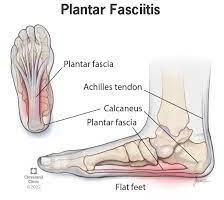The nurse observes a novice nurse caring for a client experiencing status epilepticus. It will require immediate intervention if the novice nurse does which of the following?
Activates the rapid response team (RRT).
Loosens any restrictive clothing.
Places the client in a lateral position.
Prepares to administer intravenous valproate acid.
The Correct Answer is D
Choice A rationale: Activates the rapid response team (RRT) - Status epilepticus is a medical emergency requiring immediate intervention. Activating the rapid response team would ensure a prompt response to the situation.
Choice B rationale: Loosens any restrictive clothing - It is important for patient safety and comfort.
Choice C rationale: Places the client in a lateral position - This is a recommended positioning to prevent aspiration during a seizure.
Choice D rationale: Prepares to administer intravenous valproate acid - Valproic acid is not the first drug during epilepsy hence this action would necessitate immediate intervention.
Nursing Test Bank
Naxlex Comprehensive Predictor Exams
Related Questions
Correct Answer is C
Explanation
Choice A rationale: These symptoms are more indicative of diabetic ketoacidosis, not hypoglycemia.
Choice B rationale: Symptoms of increased urination, thirst, and hunger are more associated with hyperglycemia, not hypoglycemia.
Choice C rationale: These are classic signs of hypoglycemia and should be described to the client for early recognition and intervention.
Choice D rationale: These symptoms can occur in hypoglycemia but are less specific compared to sweating, cold, trembling, and tachycardia.
Correct Answer is A
Explanation
Choice A rationale: Plantar fasciitis typically presents with severe pain in the arch of the foot, especially during the first steps in the morning or after prolonged periods of rest.
Choice B rationale: Multiple toe deformities are not typically associated with plantar fasciitis.
Choice C rationale: Redness and severe swelling are not typical findings in plantar fasciitis.
Choice D rationale: Numbness and paresthesia are not common findings in plantar fasciitis.
 |
Whether you are a student looking to ace your exams or a practicing nurse seeking to enhance your expertise , our nursing education contents will empower you with the confidence and competence to make a difference in the lives of patients and become a respected leader in the healthcare field.
Visit Naxlex, invest in your future and unlock endless possibilities with our unparalleled nursing education contents today
Report Wrong Answer on the Current Question
Do you disagree with the answer? If yes, what is your expected answer? Explain.
Kindly be descriptive with the issue you are facing.
